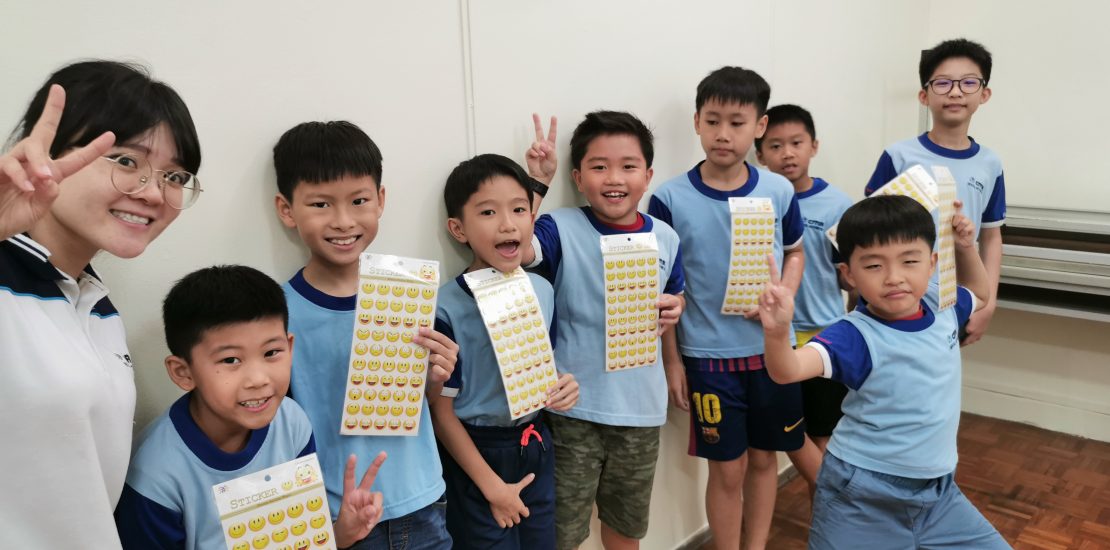- November 10, 2017
- Posted by: webmaster
- Category: Blog

Understanding how building a strong number sense can improve a child’s ability to adopt different approaches to solve problems in daily life situations.
For most children in kindergarten, their first experience and learning of number principles starts from counting with fingers. This is the basic start, but when the child continues to rely on the same strategy rather than move on to learn and adopt other strategies as well, therein lies the problem.
Let’s look at this example 5+2=7. If a child uses the finger counting strategy, the child will count from 1 all the way up. While this strategy works, the child would end up taking a long time to calculate sums, and struggle when there are double or multiple digits involved as they continues to use their fingers to count. Faced with these counting problems, a major worry for parents in Singapore today is how their child is going to tackle more advanced mathematical equations and concepts.
If a child had learned other strategies, a child would have switched to a more effective (and faster) way of counting, such as using the calculator. So, the question is, what is effective? In this update, we share the importance of cultivating number sense in a child’s mind.
Having a strong number sense infers to how comfortable and confidence a child is with numbers and the ability to switch strategies flexibly to solve a mathematical problem. To understand what number sense is about, look at these questions first:
Questions
- 15 + 12
- 215 + 212
- 915 + 312
- 9,815 + 4,312
- 98 + 15 + 43 + 12 + 51 + 89 + 21 + 34
If you were to attempt these questions mentally in 25 seconds, how much do you think you will score? Would you want to attempt the questions? Now attempt these questions and see how fast you can get the answer.
Are you able to calculate the answer with accuracy and speed by yourself? Now try using other strategies to help you out with the questions. Calculators, abacus, etc… Do you find it easier to attempt them right now?
The reason most of us will start to struggle at some point is because the proficiency level with the strategy used has limitations. A normal adult usually starts faltering by the 3rd or 4th question, indicating the limitation of a person’s ability to calculate using the strategy. For someone who has been training mental arithmetic for years, this limitation is a case of having sufficient discipline, focus, memory power & mental capability to mentally calculate numbers in their minds.
Number sense is more than calculations. In the same exercise given above, the kind of mental tenacity required during performing mental arithmetic can be experienced in most advanced learners.
A common fallacy among many people have about number sense is to assume that it takes too much effort to develop it and it is a natural flair for maths.
A well-known mathematics educator Marilyn Burns, identifies 6 qualities in students to develop strong number sense in them :
- think and reason flexibly with numbers,
- use numbers to solve problems,
- spot unreasonable answers,
- understand how numbers can be taken apart and put together in different ways,
- see connections among operations,
- figure mentally, and make reasonable estimates.
In contrast, students with weaker number sense tend to rely on the same procedures rather than reasoning, and often do not notice when answers or estimates are unreasonable, and have limited numerical common sense. (Taken from her 2007 book, About Teaching Mathematics, 3rd edition)
Moving away from mathematics, when children have a strong sense of numbers, they are able to think logically and reason flexibly, solve daily problems, spot unreasonable solutions (or fallacies), figure things out mentally, and make reasonable suggestions.
One simple and effective way to build up a strong number sense in a child begins with building the child’s confidence in his/her ability to mentally calculate sums.
Confidence comes about as the result of continued success at getting something right. With confidence, comes interest. Higher complexity sums encourage them to understand deeper.
At CMA, our students are trained to be lightning quick in mental calculations, and this gives them confidence and helps them understand how possible it is for them to achieve success by themselves. Nurturing a strong number sense and overall healthy relationship to numbers starts by learning mental arithmetic.
Published on 10th November 2017
Awards













